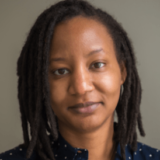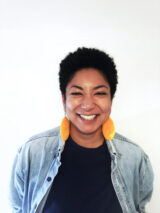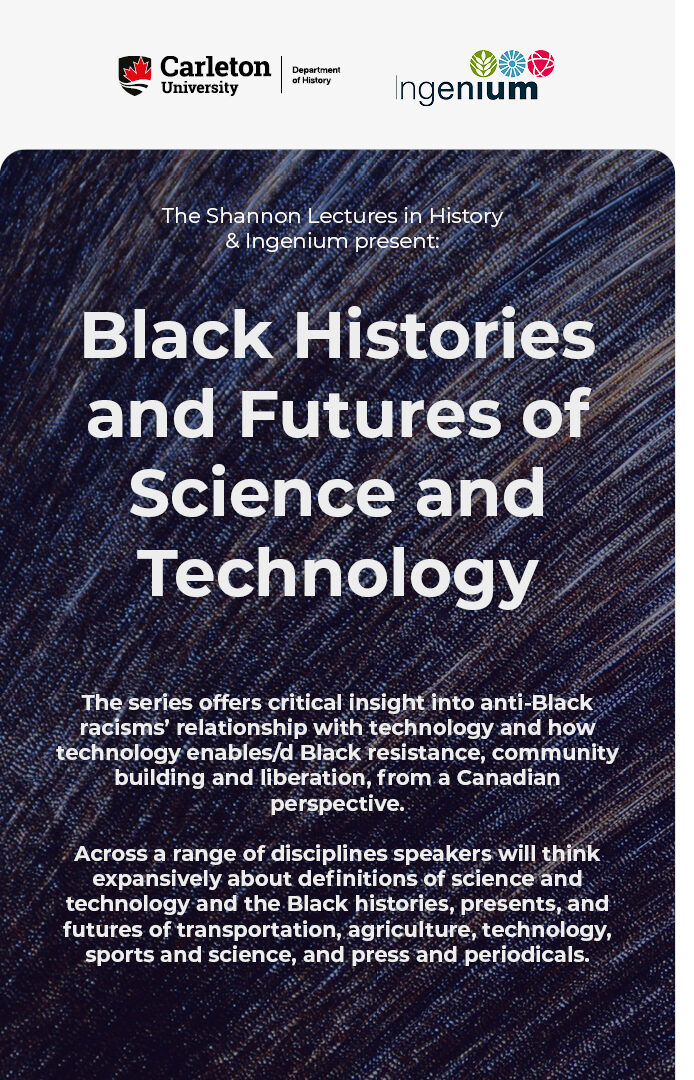Past Event! Note: this event has already taken place.
Shannon Lectures: Black Histories and Futures of Science and Technology
December 9, 2024 at 7:00 PM to 9:00 PM
| Location: | Dominion-Chalmers Centre |
| Cost: | Free |
| Audience: | Alumni, Anyone, Carleton Community, Current Students, Media, Staff and Faculty |
| Contact Email: | AfricanStudies@cunet.carleton.ca |
Session 3: December 9, 7pm, Dominion-Chalmers Centre
Description: The study of sporting bodies—like sport itself—are products of Western modernity. The larger-than-life figure of the Black athlete emerged at the turn of the 20th century alongside White European ‘sciences’ of human performance. Ensuing racist tales and fables of Black ‘natural’ physicality still permeate popular consciousness. In this talk, I map how such fantastical readings, legitimized by science and the White gaze, entrench a denial of Black self-determination, while inspiring a counternarrative Black imagination and mythologies.
 Biography: Born in Kigali, Rwanda, Dr. Ornella Nzindukiyimana (pronounced nzee-ndoo-key-yee-mah-nah) arrived in Ottawa, Canada at twelve years old. An avid soccer fan, she went on to pursue a Human Kinetics degree at the University of Ottawa (2011). In the last senior BSc year, she developed an interest in research after completing an honours project on Ottawa’s public baths in the early 20th century. The rest was history—sport history. She went on to complete an MA at Ottawa in 2013 (on Black Canadian history of swimming) and then a PhD at Western University in London, ON in 2018 (on Black women’s sport history in Ontario). Her work has appeared in forums such as Sport History Review, Loisir et Société /Society & Leisure, the Journal of Canadian Studies, and The International Journal of the History of Sport, and she has presented at multiple national and international conferences. She currently teaches sport history and sociology courses.
Biography: Born in Kigali, Rwanda, Dr. Ornella Nzindukiyimana (pronounced nzee-ndoo-key-yee-mah-nah) arrived in Ottawa, Canada at twelve years old. An avid soccer fan, she went on to pursue a Human Kinetics degree at the University of Ottawa (2011). In the last senior BSc year, she developed an interest in research after completing an honours project on Ottawa’s public baths in the early 20th century. The rest was history—sport history. She went on to complete an MA at Ottawa in 2013 (on Black Canadian history of swimming) and then a PhD at Western University in London, ON in 2018 (on Black women’s sport history in Ontario). Her work has appeared in forums such as Sport History Review, Loisir et Société /Society & Leisure, the Journal of Canadian Studies, and The International Journal of the History of Sport, and she has presented at multiple national and international conferences. She currently teaches sport history and sociology courses.
Session 4: January 13, 7pm, Dominion-Chalmers Centre
Title: Free Lance: The First Black newspaper in Montreal
Description: TBA
 Biography: Dorothy Williams, Ph.D., is a historian who specializes in Black Canadian history. She has authored three books, and has contributed to other scholarly and academic publications. Her first book was Blacks in Montreal: 1628-1986 An Urban Demography, was written at the behest of the Quebec Human Rights Commission, in 1989, during their study of racism in Montreal’s housing market. Her second work published in 1997, The Road to Now: A History of Blacks in Montreal, remains the only chronological study of Blacks on the island of Montreal. Her most recent book in 1998, Les Noirs à Montréal, Essai de démographie urbaine, was a translation of Blacks in Montreal. While studying for her Ph.D., she contributed chapters on Black Canadian print culture, for two volumes of The History of the Book in Canada, (University of Toronto, 2005, 2007). Her thesis, “Sankofa: Recovering Montreal’s Heterogeneous Black Print Serials”, (McGill University, 2006) focused specifically on the range of Black print culture in Montreal. In addition, she has penned popular articles in magazines and newspapers.
Biography: Dorothy Williams, Ph.D., is a historian who specializes in Black Canadian history. She has authored three books, and has contributed to other scholarly and academic publications. Her first book was Blacks in Montreal: 1628-1986 An Urban Demography, was written at the behest of the Quebec Human Rights Commission, in 1989, during their study of racism in Montreal’s housing market. Her second work published in 1997, The Road to Now: A History of Blacks in Montreal, remains the only chronological study of Blacks on the island of Montreal. Her most recent book in 1998, Les Noirs à Montréal, Essai de démographie urbaine, was a translation of Blacks in Montreal. While studying for her Ph.D., she contributed chapters on Black Canadian print culture, for two volumes of The History of the Book in Canada, (University of Toronto, 2005, 2007). Her thesis, “Sankofa: Recovering Montreal’s Heterogeneous Black Print Serials”, (McGill University, 2006) focused specifically on the range of Black print culture in Montreal. In addition, she has penned popular articles in magazines and newspapers.
Past Lectures in This Series
Session 1: October 21, 7pm – Virtual
Title: Ingenium’s Black and African Canadian Scientific and Technological Innovations Fellowship
Ingenium oversees three national museums which include the Canada Agriculture and Food Museum, the Canada Aviation and Space Museum, and the Canada Science and Technology Museum. Ingenium is responsible for Canada’s national scientific and technological collection which includes over two million archival items and more than 150,000 artifacts. The Black and African Canadian Scientific and Technological Innovations Fellowship is an opportunity for current graduate students from Canadian universities to research the historical and/or contemporary connections between Black and African Canadians and science and innovation. The inaugural fellows are Mila Mendez (they/them), a doctoral student at York University and Samia Dumais (she/her) a doctoral student at Concordia University.
Mila Mendez will speak on their experience and research as a fellow in the Black and African Canadian Scientific and Technological Innovations fellowship at Ingenium Centre, exploring Black agriculture in 19th century Southwestern Ontario. Through the application of such Black Studies and Black feminist offerings as “critical fabulation,” “wake work” and “freedom dreams,” this research suggests four curatorial reflections for engaging with artifacts and archives in the Ingenium Centre collections in order to tell stories of early independent Black farming. These include: on land clearance and printing, on innovative labour vs. innovative tools, on care in presentation, and on uplifting freedom dreams over failed initiatives.
Samia Dumais’s talk engages with the CN Images of Canada Collection, archived at Ingenium, which is one of the most comprehensive collections of photos of Black railway workers. Black porters can be seen completing various tasks related to their work, like assisting customers, taking care of passenger’s children, polishing shoes, and preparing the beds. However, these staged pictures are not representative of the work conditions or societal experiences of Black porters in the early 20th century. Through an assessment of the Canadian National Railways Magazine and Spanner, the two periodicals respectively published by the Canadian National Railway and the Canadian Pacific Railway, this presentation seeks to note the dichotomies between the pictorial representations of Black railway workers and more largely, Black communities within the periodicals. This presentation will demonstrate that it is possible to create a counter-narrative highlighting the multiple realizations of Black workers and communities on the railway with the use of oral histories, documentaries, and autobiographies.
Biography:
 Mila Mendez (they/them) is a parent, cultural worker and educator committed to transformative relationships, spaces and ideas. They find joy and grounding in the capaciousness of Black feminisms to show us what care can do. As a doctoral candidate in Gender, Feminist and Women’s Studies at York University, Mila’s current research is curious about Black queer and trans feminist cultural production in relation to and beyond the forces of colonialism, racial capitalism and cisheteropatriarchy. Mila has been working to cultivate a careful and caring practice of the labour that is envisioning and administrating at the intersection of art, politics, and education. They currently do this work in Tkaronto.
Mila Mendez (they/them) is a parent, cultural worker and educator committed to transformative relationships, spaces and ideas. They find joy and grounding in the capaciousness of Black feminisms to show us what care can do. As a doctoral candidate in Gender, Feminist and Women’s Studies at York University, Mila’s current research is curious about Black queer and trans feminist cultural production in relation to and beyond the forces of colonialism, racial capitalism and cisheteropatriarchy. Mila has been working to cultivate a careful and caring practice of the labour that is envisioning and administrating at the intersection of art, politics, and education. They currently do this work in Tkaronto.
 Samia Dumais is a doctoral student in history at Concordia University. Her research focuses on African-Canadian history in the second half of the twentieth century, and on the contemporary experiences of Afro-descendant and immigrant communities within Quebec and Canadian educational structures. A member of the editorial board of HistoireEngagée.ca magazine, Samia Dumais has worked on a variety of research projects in Ontario and Quebec. She is currently the archivist for the community organization Harambec.
Samia Dumais is a doctoral student in history at Concordia University. Her research focuses on African-Canadian history in the second half of the twentieth century, and on the contemporary experiences of Afro-descendant and immigrant communities within Quebec and Canadian educational structures. A member of the editorial board of HistoireEngagée.ca magazine, Samia Dumais has worked on a variety of research projects in Ontario and Quebec. She is currently the archivist for the community organization Harambec.
Session 2: November 13, 7pm, Dominion-Chalmers Centre
Title: Race, Afrofuturism, and the Digital Divide: Exploring the Tense of Black Technoculture through Art, Dance, and Literature
Description: In his book, In the Black Fantastic (2022) Ekow Eshun describes the Black fantastic as “lenre or a movement than a way of seeing.” In 1993, Mark Dery defined “Afrofuturism” as addressing Blackness in twentieth-century technoculture. In 2017, Tina Campt asked, “What is the tense of a Black future?” This talk examines how these perspectives – identifiable in art, dance, and literature – point to a Black technoculture and to challenging the digital divide.
 Biography: Cheryl Thompson is an Associate Professor in Performance at The Creative School, Toronto Metropolitan University where she teaches performance history courses. She is author of Uncle: Race, Nostalgia, and the Politics of Loyalty (2021) and Beauty in a Box: Detangling the Roots of Canada’s Black Beauty Culture (2019). Dr. Thompson has published in the Canadian Theatre Review, Canadian Journal of Communication, and Canadian Journal of History, and many more. Her third book, Canada and the Blackface Atlantic: Performing Slavery, Conflict, and Freedom, 1812-1897, will be published with Wilfrid Laurier Press in 2025.
Biography: Cheryl Thompson is an Associate Professor in Performance at The Creative School, Toronto Metropolitan University where she teaches performance history courses. She is author of Uncle: Race, Nostalgia, and the Politics of Loyalty (2021) and Beauty in a Box: Detangling the Roots of Canada’s Black Beauty Culture (2019). Dr. Thompson has published in the Canadian Theatre Review, Canadian Journal of Communication, and Canadian Journal of History, and many more. Her third book, Canada and the Blackface Atlantic: Performing Slavery, Conflict, and Freedom, 1812-1897, will be published with Wilfrid Laurier Press in 2025.
 Description: In partnership with Ingenium – Canada’s Museums of Science and Innovation, this year’s edition of the Shannon Lecture Series is titled “Black Histories and Futures of Science and Technology.” The series offers critical insight into anti-Black racisms’ relationship with technology and how technology enables/d Black resistance, community building and liberation. Across a range of disciplines speakers will think expansively about definitions of science and technology and the Black histories, presents, and futures of transportation, agriculture, technology,
Description: In partnership with Ingenium – Canada’s Museums of Science and Innovation, this year’s edition of the Shannon Lecture Series is titled “Black Histories and Futures of Science and Technology.” The series offers critical insight into anti-Black racisms’ relationship with technology and how technology enables/d Black resistance, community building and liberation. Across a range of disciplines speakers will think expansively about definitions of science and technology and the Black histories, presents, and futures of transportation, agriculture, technology,